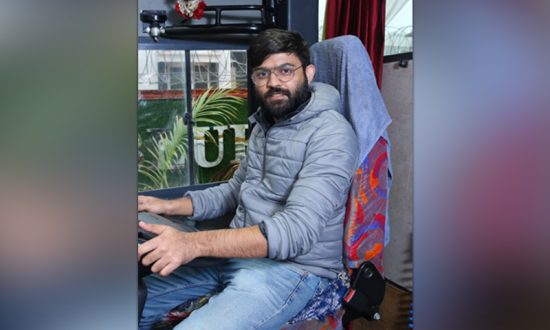Mratunjay is a cofounder of zingbus and looks after business operations for the company. An alumnus of IIT Kharagpurfrom the 2014 batch like his partner Prashant, Mratunjay has extensive experiences in Revenue management, Business strategy & Growth in Startups. Even prior to zingbus, he has extensively worked in the start-up ecosystem in pivotal roles.
Public transport is a basic necessity for mobility in our country where not everyone can afford personal vehicles. Bus transport is a veritable lifeline for many. People from both urban and rural areas prefer to travel regularly by bus. This mode provides better point-to-point services than other modes, and the seat availability is easier as options are many. Through the lockdowns, the bus industry has suffered huge losses as mobility was restricted.
But since the easing of the lockdowns, people have begun returning to their pre-pandemic routines. They have started traveling again and are very mindful of the hygiene conditions of the bus they intend to use. The threat of Covid-19 has altered our perspectives on everything, particularly when it comes to choosing travel modes, and specifically public transport. While people are not refraining from traveling, but they are highly concerned about proper precautionary measures.
Cleanliness and deep sanitization protocols now need to be ingrained in the playbook – safety is no longer a luxury; It needs to be the bare minimum on the service provider’s checklist. The industry must cultivate an operations-wide DNA that recognizes the importance of delivering superior customer health and safety standards.
Even before the pandemic, many bus aggregators have always been a step ahead and the preferred choice of travelers as they paid attention to maintaining the cleanliness of their fleet and peripherals. After each trip, deep cleaning of the vehicle and providing only a freshly laundered blanket to each traveler every time have been some of the best practices that set them apart from other operators and their services more sought after by the discerning travelers.
In these post-lockdown times, mindful of raising the hygiene standards, aggregators are adding some more disinfection and sanitization steps before and during the journey. They diligently follow fumigation of fleets at each terminal, sanitization, and temperature check of crew and passengers before boarding the bus. Sanitizing is the only proven method of disarming the virus from surfaces. It is essential to sanitize every corner of the bus after each ride to nullify any chance of transmission. As part of the protocol, cabins are being sprayed before and after each journey. The crew and the pitstop staff are being given rigorous training in covid appropriate processes and behaviors.
Social distancing while queueing and adherence to masking is a must for all. Following a resurgence of coronavirus cases in India, several state governments have made a Covid-19 negative test mandatory for all visitors on arrival. The test should have been completed 72 hours before the journey, and each passenger is required to sign a declaration attesting to the report’s authenticity. Hence, RTPCR reports integration and checks are followed wherever mandated by the state governments.
Going beyond the obvious, the operators are also taking care of small yet crucial aspects like changing the reusables to single-use consumables; for example, use & throw sheets are now being used in sleeper buses. To reduce the risk of transmission, the operators have appointed teams to inspect each rest stop for hygiene standards, cleanliness, safety measures, and adherence to COVID-19 protection norms, washroom maintenance, and other factors. The teams also ensure that their passengers have disposable gloves, clean masks or face covers, alcohol-based hand sanitizers, and other necessary items.
People today are more comfortable with booking online rather than going to a bus stand or an agent or booking on the spot. To ease the booking & boarding process, digitally-enabled operators have made the methods completely contactless. Both public and private buses are now offering software applications to book tickets in advance using our smartphones. This procedure is not only safe, but it also guarantees a seat. This technology also allows each passenger to see the exact details of her route and the progress of the journey in real-time, which is an essential factor in achieving a low-contact trip. Access through a unified app for the crew and passengers allows for 100% contactless boarding and de-boarding. The bus operators are using modern technologies like Artificial Intelligence to keep track of their processes and avoid any gaps between travelers and bookings to make the journeys safer and convenient.
Lastly, but most importantly, getting the entire crew vaccinated against the Covid virus is on high priority. Vaccination of the whole bus crew will ensure the safety of staff and travelers to a large extent.
Overall, all bus operators must move fast to incorporate touchless and fully digitized payment systems. Digital payment will reduce the number of surfaces riders must touch thereby, limiting contact with fare collectors, which is vital in containing the contagion. Also, digitized payment systems are less expensive and more economical to operate in the long run. Using technology for internal and external co-ordinations will enable operators to design smarter, more flexible schedules and routes – a win-win for all.


